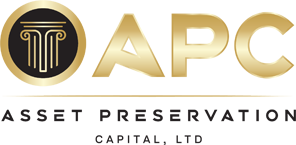By Andy Ives, CFP®, AIF®
IRA Analyst
Question:
I am still working at age 71 and don’t really need the required minimum distributions (RMDs) from my rollover IRA. The IRA was funded largely with distributions from a tax-qualified pension plan and a tax-qualified 401(k) plan. Some deductible contributions were made many years ago as well. I would like to transfer some of the IRA into my current employer’s 401(k) so as to reduce RMDs until I terminate my employment with my current employer. I am not a 5% owner of the company, so I don’t currently have to take RMDs from the 401(k). Does the fact that the IRA has “commingled money” in it (although it’s all taxable–no basis in the account) preclude the plan sponsor from accepting a trustee to trustee transfer? I realize the Plan does not have to accept the transfer, but would it be permissible if the sponsor approved? Thanks.
Doug
Answer:
Doug,
The fact that your IRA is an amalgam of rollover dollars and contributions does not preclude it from being rolled over or transferred into your current employer plan. There used to be rules forbidding “commingled” IRA funds from being rolled over to a plan, but those rules are long gone.
When rolling over funds from an IRA to a 401(k) to minimize your RMD, there are a few items to consider, including: Does your current employer plan accept rollovers? Does your current employer plan have the still-working exception? Do you have basis (after-tax money) in your IRA?
Only pre-tax dollars can be rolled into a 401(k). If your current plan accepts rollovers and has the still-working exception (neither are required), you will be able to delay RMDs on your plan money until April 1 of the year after you retire. You will also be able to minimize the RMD on any dollars left behind in the IRA. Regardless of how the funds move, just be sure to take your IRA RMD prior to rolling or transferring any money into the plan.
Question:
If a person is still working and contributing to a 403b, are they still required to take an RMD? Seem to be getting conflicting answers. Thank you.
John
Answer:
John,
While the still-working exception does apply to 403(b) plans, it is not a required plan design feature. Just like not every plan allows loans or has a designated Roth account, not every plan will have a still-working exception. That is probably why you have been receiving conflicting answers. The best way to resolve the situation is to ask the sponsor of the 403(b) if it has the still working exception. If it does, then a person who is still working can delay their plan RMD until April 1 of the year after the year they retire. Be aware, the still working exception only applies to the plan where the person is currently employed, and the exception does not apply to IRAs.
https://www.irahelp.com/slottreport/ira-rollovers-and-required-minimum-distributions-todays-slott-report-mailbag
